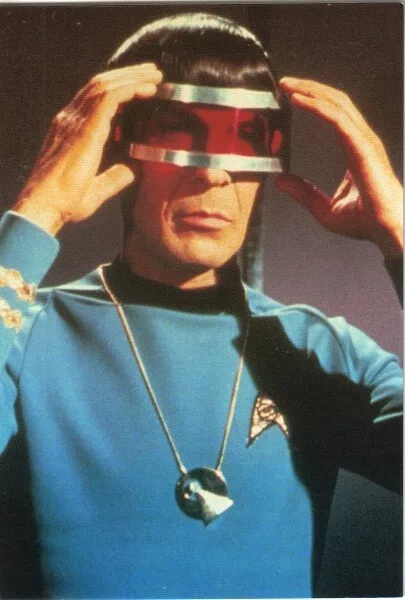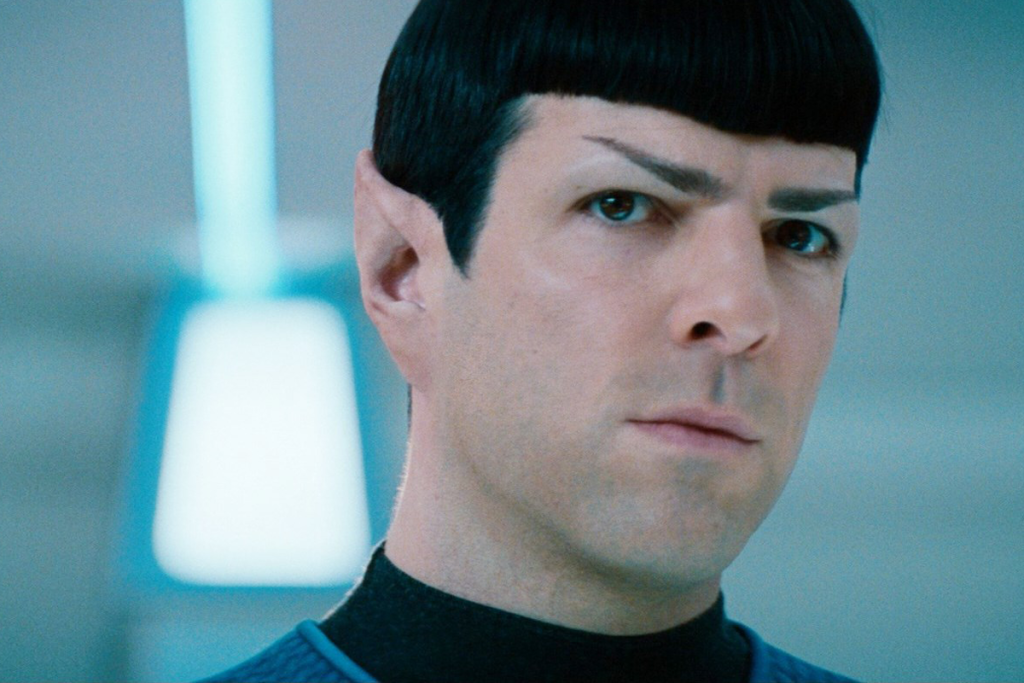Spock’s journey through Starfleet ranks is a testament to his exceptional intellect, unwavering loyalty, and unique perspective as a half-Vulcan, half-Human officer. His career, spanning decades, has left an indelible mark on the organization and the entire United Federation of Planets.

Early Days in Starfleet
Spock joined Starfleet Academy against his father’s wishes, choosing a path that would allow him to explore both his logical Vulcan nature and his human heritage. His time at the Academy was marked by academic excellence, particularly in the sciences and xenobiology. This foundation would serve him well in his future role as Science Officer aboard the USS Enterprise.
Rising Through the Ranks
After graduation, Spock’s first assignment was under Captain Christopher Pike on the USS Enterprise. His analytical skills and cool demeanor quickly earned him respect among the crew. Spock’s promotion to Science Officer came as no surprise to those who had worked with him, recognizing his unparalleled ability to process and interpret complex data.
The Kirk-Spock Dynamic
When James T. Kirk assumed command of the Enterprise, a legendary partnership was born. Spock’s logical approach often served as a counterbalance to Kirk’s more intuitive and emotional decision-making process. This dynamic was crucial in numerous missions, perhaps most notably in “The City on the Edge of Forever.” In this episode, Spock’s analytical prowess helped navigate the complexities of time travel while grappling with the emotional weight of potentially altering history.
Key Missions and Contributions
Spock’s role in Starfleet missions often proved pivotal. In “The Galileo Seven,” his leadership skills were put to the test when commanding a shuttle crew stranded on a hostile planet. This mission highlighted Spock’s growth as an officer, learning to balance logic with the emotional needs of his team.
The episode “Amok Time” provided a rare glimpse into Spock’s personal life and Vulcan culture. His willingness to risk his career to return to Vulcan for the pon farr ritual demonstrated the complex nature of his character, torn between duty and biological imperatives.

One of Spock’s most significant contributions came in “The Enterprise Incident,” where his expertise in Romulan culture and technology was instrumental in a covert mission to steal a cloaking device. This mission showcased Spock’s versatility as both a scientist and a strategist.
Shaping Starfleet Strategies
Spock’s logical approach to problem-solving has had a lasting impact on Starfleet’s strategic operations. His ability to remain calm under pressure and analyze situations objectively has been incorporated into Starfleet training programs. The Kobayashi Maru scenario, a notoriously unwinnable training exercise, is said to have been influenced by Spock’s emphasis on logical decision-making in no-win scenarios.
Later Career and Legacy
Spock’s career extended well beyond his time on the Enterprise. He played a crucial role in peace negotiations with the Klingon Empire, as seen in “Star Trek VI: The Undiscovered Country.” His diplomatic skills, honed through years of interspecies interactions, proved invaluable in these delicate negotiations.
In his later years, Spock became an ambassador, working tirelessly towards Romulan-Vulcan reunification. This effort, depicted in the “Unification” episodes of Star Trek: The Next Generation, showcased Spock’s enduring commitment to peace and understanding between different cultures.
Conclusion
Spock’s career in Starfleet is a shining example of dedication, intellectual rigor, and personal growth. From his early days as a cadet to his role as a respected ambassador, Spock’s journey has been one of continuous learning and adaptation. His logical approach, tempered with a growing understanding of human emotion, has not only shaped his own career but has also left a lasting impact on Starfleet’s approach to exploration, diplomacy, and crisis management.
Through countless missions, personal challenges, and galaxy-spanning adventures, Spock has proven time and again that the needs of the many outweigh the needs of the few – or the one. His legacy continues to inspire new generations of Starfleet officers, encouraging them to approach the unknown with both scientific curiosity and ethical consideration.
Leave a Reply